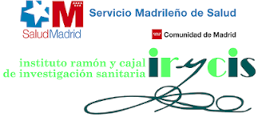PARTNERS

BIOMEDICINSKE CENTRUM SLOVENSKEJ AKADEMIE VIED, VEREJNA VYSKUMNA INSTITUCIA
Biomedical Research Center of the Slovak Academy of Sciences (BMC SAS) is currently the largest Slovak institution (>400 employees) devoted to basic and applied research in biomedical sciences. BMC SAS was officially established on January 1st, 2016 by merge of 4 formerly independent SAS institutes: Institute of Experimental Endocrinology, Cancer Research Institute, Institute of Virology and Institute of Clinical and Translational Research. On January 1st, 2018 BMC SAS was joined by Institute of Neurobiology, SAS. These institutes now form its main organization units. The principal mission of the research centre is to foster research excellence, develop interdisciplinary approaches, and stimulate innovative potential for the improvement of our knowledge on human diseases, its better translation to clinic and more effective practical use for the benefit of patients and the entire society. BMC SAS research is focused on understanding metabolic, neuroendocrine, autoimmune and cardiovascular disorders, cancer, and infections and especially their interrelationships when co-occurring in the same organisms. BMC SAS also has a large portfolio of patents related to diagnostics and therapy of cancer. The institution also serves as PhD supervising entity with accreditation for several PhD programs.
The Cancer Research Institute represents a unique research institution in Slovakia which covers a wide research area of basic and translational cancer research. The research activities are focused on the latest topics in oncology, having an impact on understanding the mechanisms of cancer development, prevention, diagnosis and eventually treatment including epigenetics and nanobiology/nanomedicine.

FRAUNHOFER GESELLSCHAFT ZUR FOERDERUNG DER ANGEWANDTEN FORSCHUNG E.V.
The Fraunhofer-Gesellschaft is the leading organization for applied research in Europe. Its research activities are conducted by 72 institutes and research units at locations throughout Germany. The Fraunhofer-Gesellschaft employs a staff of more than 26,600, who work with an annual research budget totaling more than 2.5 billion euros.
The Fraunhofer Institute for Biomedical Engineering IBMT acts as a device and technology developer when it comes to the solution of individual research and development projects and tasks from the areas of biomedical engineering, medical biotechnology, biohybrid technology, bioprocessing & bioanalytics, nanotechnology, ultrasound technology, biomedical microsystems, health information systems, theranostics, as well as laboratory automation including in-line/on-line process control.

SERVICIO MADRILENO DE SALUD
Servicio Madrileño de Salud (SERMAS) is the administrative and management structure that integrates every public hospital and other public health services of the Madrid Regional Health System. Hospital Universitario Ramón y Cajal (HURYC) is a 1,000 bed University hospital in Madrid founded in 1977 and affiliated to Universidad de Alcalá de Henares. It provides comprehensive health care in all medical and surgical specialities and has a basic research department and major research infrastructures. It has an established research institute (IRYCIS) that encompasses basic, translational and clinical research departments, with all the required infrastructures to perform phase I to IV clinical trials, including full laboratory and imaging equipment and an Ethical Committee. It ranks first in Madrid and third in Spain in biomedical research production, working in partnership with more than 50 international leading centres. IRYCIS consists of 37 research groups that focus their activities on five major areas (Neurosciences; Microbiology, Immunology and Infection; Chronic Diseases and Cancer; Epidemiology and Health Technology; Cardiometabolism and Systems Pathology), as well as many other independent researchers from the clinical area. All this critical mass generates nearly 800 publications and around 250 new projects and clinical trials per year. The knowledge generated by all this activity has resulted in more than 70 innovation projects and 23 patent families.
www.irycis.org/irycis_presentacion.htm

ETHNIKO KAI KAPODISTRIAKO PANEPISTIMIO ATHINON
The First Department of Propaedeutic Surgery of the Medical School of National and Kapodistrian University of Athens (NKUA) was established in 1922. Since 1943 operates in the “Hippokration” General Hospital of Athens and comprises of sixteen units including a Breast Unit, a Hepatopancreatobiliary Unit, Upper and Lower Gastrointestinal Units, an Intensive Care Unit and a Laboratory of Experimental Surgery.
The Department’s multidisciplinary network of highly specialized in state-of-the-art surgical practices clinicians in collaboration with basic and translational research scientists is dedicated to providing high quality healthcare and promoting academic excellence. First Department of Propaedeutic Surgery is responsible for the academic and clinical training in General Surgery of NKUA medical students and general surgery residents.
Both clinical and basic research oriented academic facilities where clinicians and translational research scientists work together, and in collaboration with National and International Pharmaceutical companies and Research Institutes, to guarantee quality, originality, innovation and transferability of the results into clinical practice. Scientific meetings/conference organized by the different Units of the Department are held every year. Also, a Postgraduate Program hosting lectures by distinguished Professors reviewing current literature and presenting innovative research protocols runs annually. Furthermore, a Postgraduate Program leading to a Master of Science (MSc) Degree on "Surgical Oncology" co-organized with the 2nd Department of Surgery of NKUA in “Aretaieio” Hospital of Athens, offers postgraduate students the opportunity to be exposed to state of the art scientific knowledge and surgical practices in many fields of surgical oncology in order to optimize patient treatment and prognosis.

NORSK INSTITUTT FOR LUFTFORSKNING STIFTELSE
NILU is an independent, non-profit research institution, and is one of the leading European institutes in environmental and climate research. The institute has an excellent track record for participation and management of externally funded projects internationally as well as nationally, including 41 projects under FP7 (about 12 mill EUR) and about 15 projects under H2020 program, including one ERC grant. NILU’s laboratories are among the most advanced in Europe, and perform a number of EN/ISO/IEC 17025 accredited inorganic and organic analysis. Toxicological research at NILU is undertaken by the Health Effects Laboratory (HEL), which is certified for Good Laboratory Practice (GLP) in in vitro toxicology, genetic toxicology and nanotoxicology and is among the leading laboratories in Europe in these areas. The main topics of interest for HEL, additionally to genetic toxicology, are carcinogenicity in vitro, epigenetics, advanced in vitro models, risk assessment and regulatory aspects of nanomaterials and pollutants, high-throughput approach to toxicity testing, intelligent testing strategy and adverse outcome pathways.
NILU gives expertise in various committees and has members in the ISO Committees for Standards Norway, and appointed member in the EU Scientific Committee of Consumer Safety (SCCS). Nationally, HEL has a member in the expert group for toxicology and for nanosafety research.
NILU also acts as National coordinator for nanosafety in Norway, holds workshops on nanosafety and communicates with different stakeholders and media, and is coordinator of the large European H2020 project RiskGONE for science-based risk governance for nanotechnology and dissemination.








